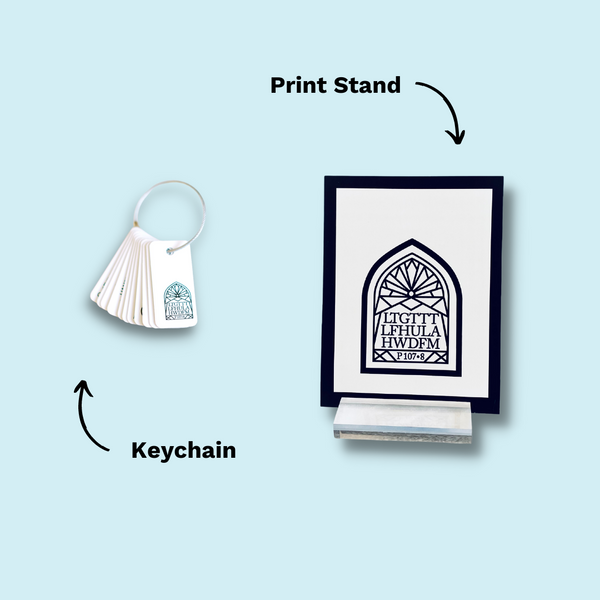Don't believe these lies about forgiveness.
BE KIND AND COMPASSIONATE TO ONE ANOTHER, FORGIVING EACH OTHER, JUST AS IN CHRIST GOD FORGAVE YOU. -EPHESIANS 4:32
Have you ever felt pressured to forgive someone?
Oh friend. Sometimes I get to sit with you and discuss hard things, things you’ve been told, half truths given unsympathetically about how you should do this or that in order to be a “good Christian”. You’ve probably been told these things by well meaning people who love Jesus. And sometimes, these insensitive comments roll off, but other times they stick around and wound us. As a pastor’s wife, I’ve witnessed firsthand a lot of hurt around the topic of forgiveness. There’s been minimizing of pain, sweeping under the rug of problems, even some shaming of those who struggle to forgive. And frankly, I’m sure I’ve said careless things to people, people with deep wounds who needed compassion more than answers or direction. So, as one who hasn’t always handled this topic as well as I should, let me say on behalf of myself and those who may have trampled you (even just a little), I’m sorry. Though we Christians may represent the most compassionate person, Jesus, we often fall short of his true heart for wounded people. It’s my hope that here in this space, we can undo some of the misconceptions we’ve been told about how forgiveness works. I think we’ll discover a lot about what forgiveness is by looking at what forgiveness isn’t.
(CONTINUED BELOW)
(CONTINUED FROM ABOVE)
Forgiveness isn’t easy. There’s no part about giving up a wrong we’ve received that comes naturally to us. We want to hold on. We want to make them pay. When we forgive, we’re choosing the hard path, especially when forgiveness is given to someone who isn’t sorry or who is a repeat offender.
Forgiveness isn’t cheap. When we forgive, we’re pardoning someone instead of asking them to pay for their offence. Essentially, we’re the ones who’ve paid for the offence with our hurt. By not holding those wrongs against someone, we’re absorbing the offence instead of punishing them.
Forgiveness isn’t instantaneous. I struggle with this one. When I’ve wronged someone, I can be an instant-forgiveness bully. I want forgiveness and I want it now! But truly forgiving someone from the heart can take much time, prayer, conversations, and counsel.
Forgiveness isn’t always one and done. Sometimes, we pick back up our anger, hurt, bitterness, or frustration. We wonder why they have it so easy or haven’t experienced the consequences we feel they should. True forgiveness must persist through these feelings and work again towards genuinely letting go of resentment. Forgiveness is a matter of our own heart, not theirs.
Forgiveness isn’t earned. Anyone who’s ever tried to make someone “pay” for their wrongs knows there’s never any real satisfaction in it. It simply cannot cover the offence, or it just adds more offenses, this time on our own side. Forgiveness doesn’t work that way; it doesn’t add up accounts to balance them, but it cancels the debt entirely.
Forgiveness isn’t weakness. Letting go of bitterness and resentment is a powerful thing. Forgiveness isn’t what weak people do because they can’t stick up for themselves. Real forgiveness takes courage, strength, and perseverance.
Forgiveness isn’t condoning the offence. Oftentimes, we don’t want to forgive because we feel like somehow it would make the offence acceptable or okay. This is simply not the case. The mere fact that we must forgive someone testifies that what they did was wrong.
Forgiveness isn’t without boundaries. When we forgive someone who has hurt us, we sometimes need to set up new boundaries—structures we put in place to keep ourselves safe from repeat offences.
Forgiveness isn’t without consequences. Whatever the offence, there will always be consequences for sin. In our relationships it might look like a loss of trust or a desire to refrain from certain pastimes or, in more extreme cases, a need to break off the relationship entirely.
Forgiveness isn’t reconciliation. There are many cases when reconciliation is impossible or could be damaging to the wounded person. But forgiveness is possible! Forgiveness is a matter of the heart. It’s letting go of bitterness, anger, and resentment. But it doesn’t always mean holding on to the relationship.
Here we come to nearly the end of our list. I’m sure there are more things you’ve heard or felt about forgiveness that made it feel untenable, cheap, or distasteful to you. I hope this post has cleared away some of those lies you may have heard or believed. As you consider and remove those barriers, I hope you’re ready to embrace true forgiveness in your heart for the people who have harmed you. Because there’s one more thing...
Forgiveness isn’t optional. At the core, we are forgiven people. God himself forgave all our wrongs—undeservedly, freely, completely. So he asks us to do the same. But, this is a much bigger topic, one we’ll tackle next week when we talk about “What Forgiveness Is”.
Which of these lies do you tend to believe?
Have you ever felt pressured to forgive someone in these ways? Have you ever pressured someone else to forgive you in these ways?
How can you let go of the pressure to forgive in shallow, unhealthy ways?
Thanks for reading,


Meet Natalie,Dwell co-founder
Hi there, I'm Natalie! I'm so glad you're here. I'd love to connect with you to hear more about what God is doing in your life!
Connect
We'd love to see you around.








